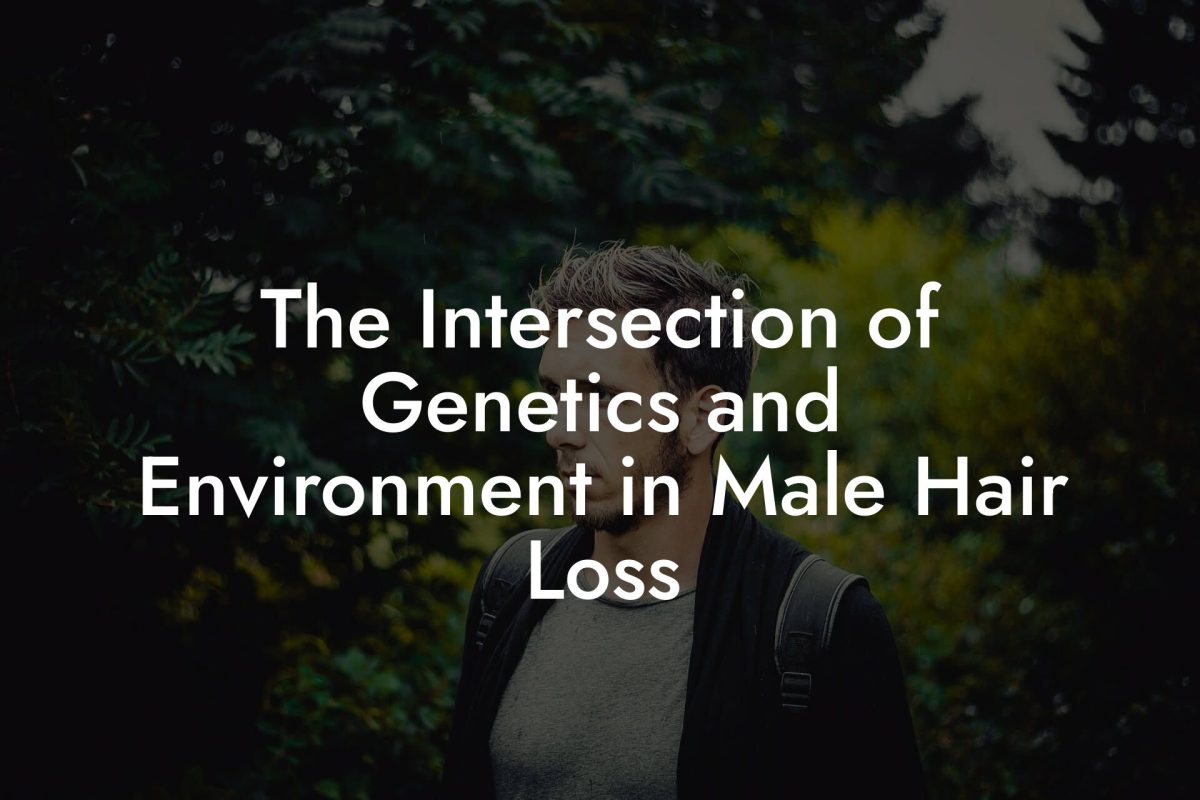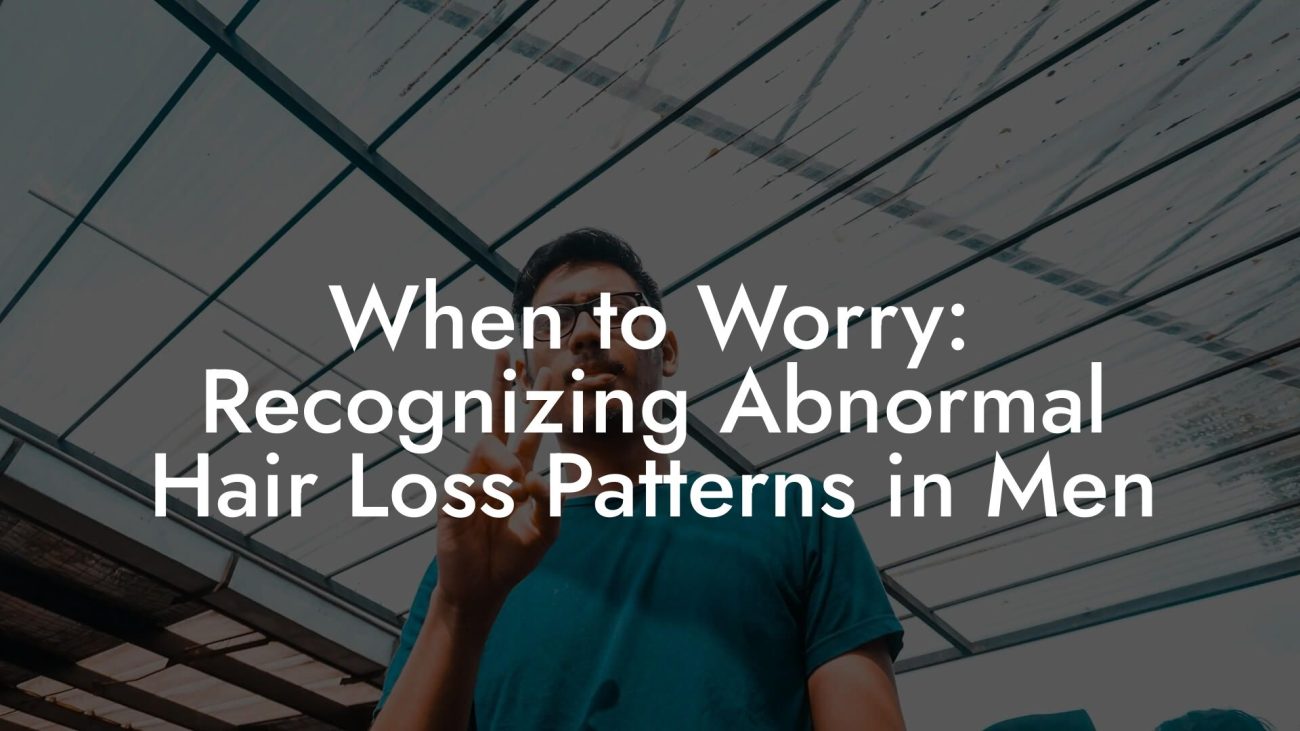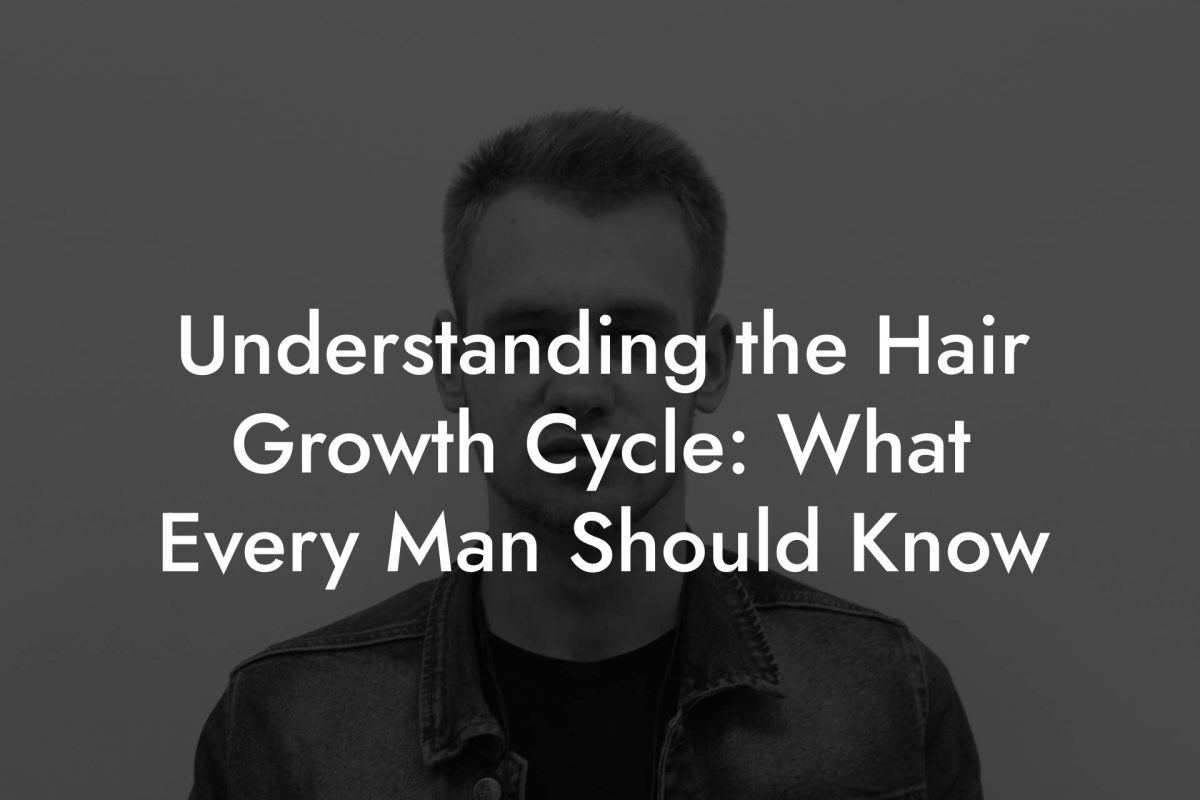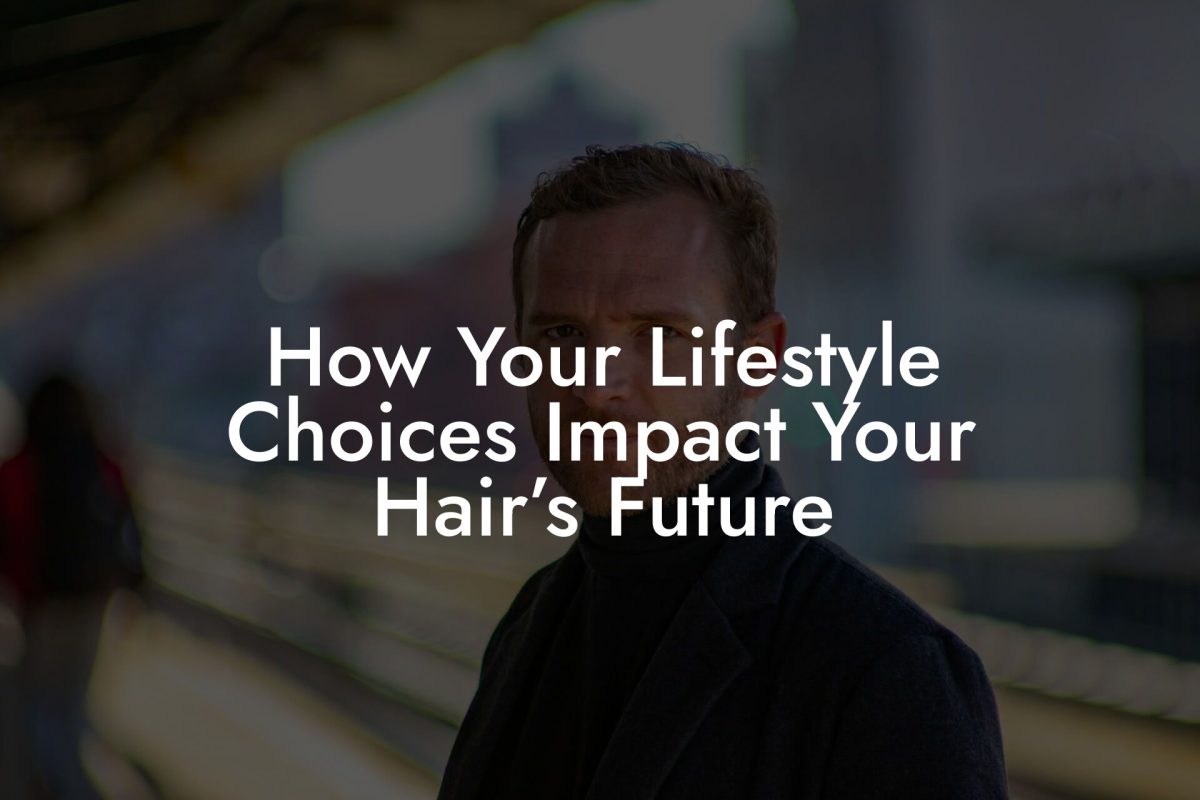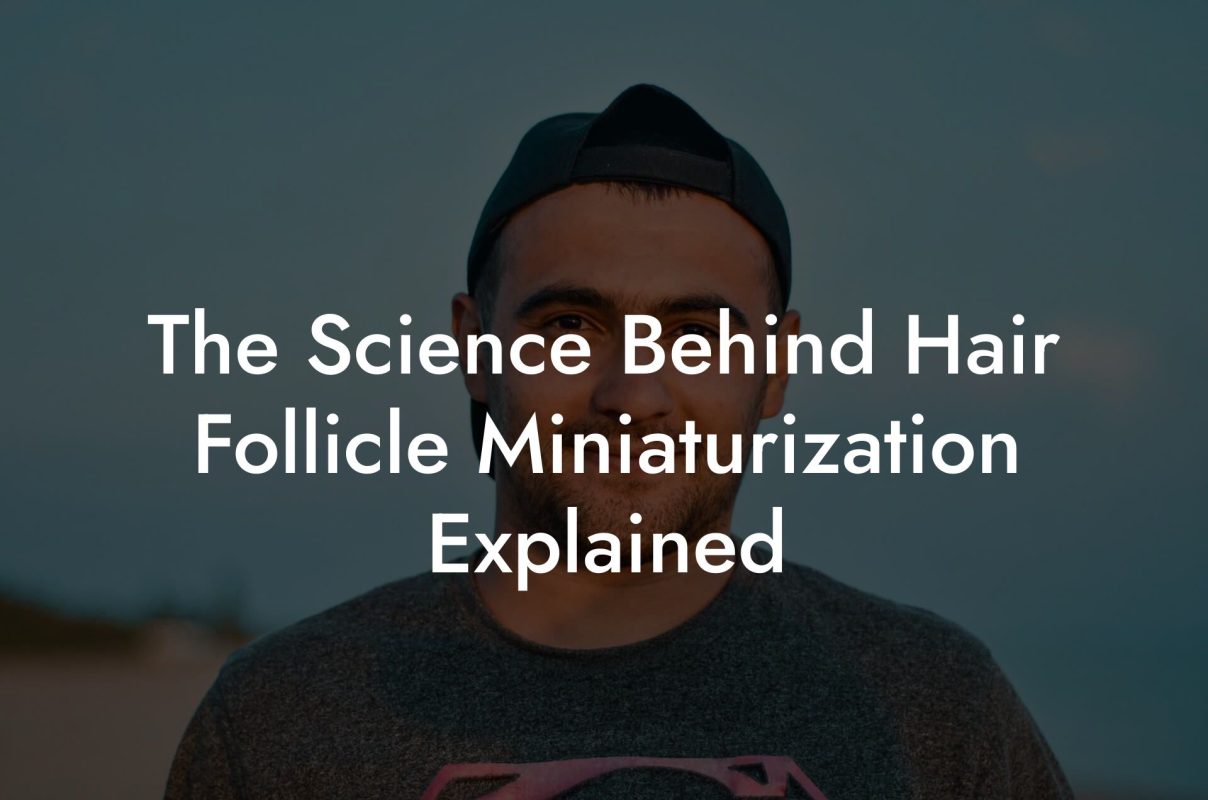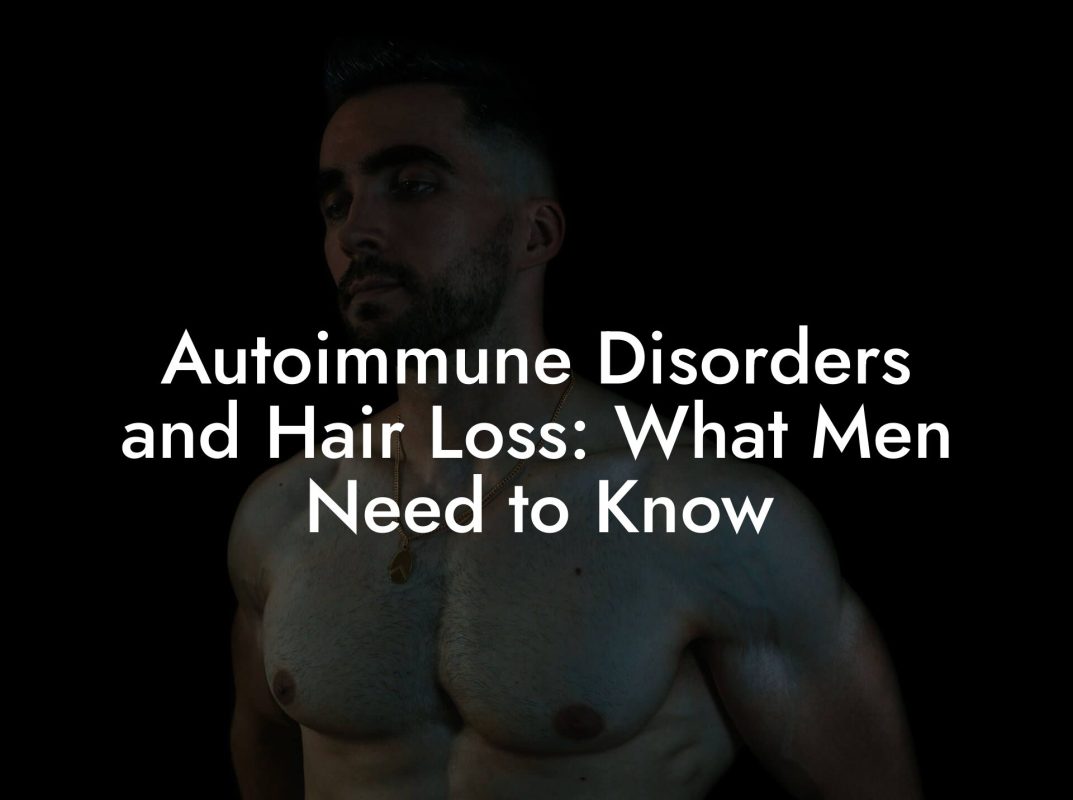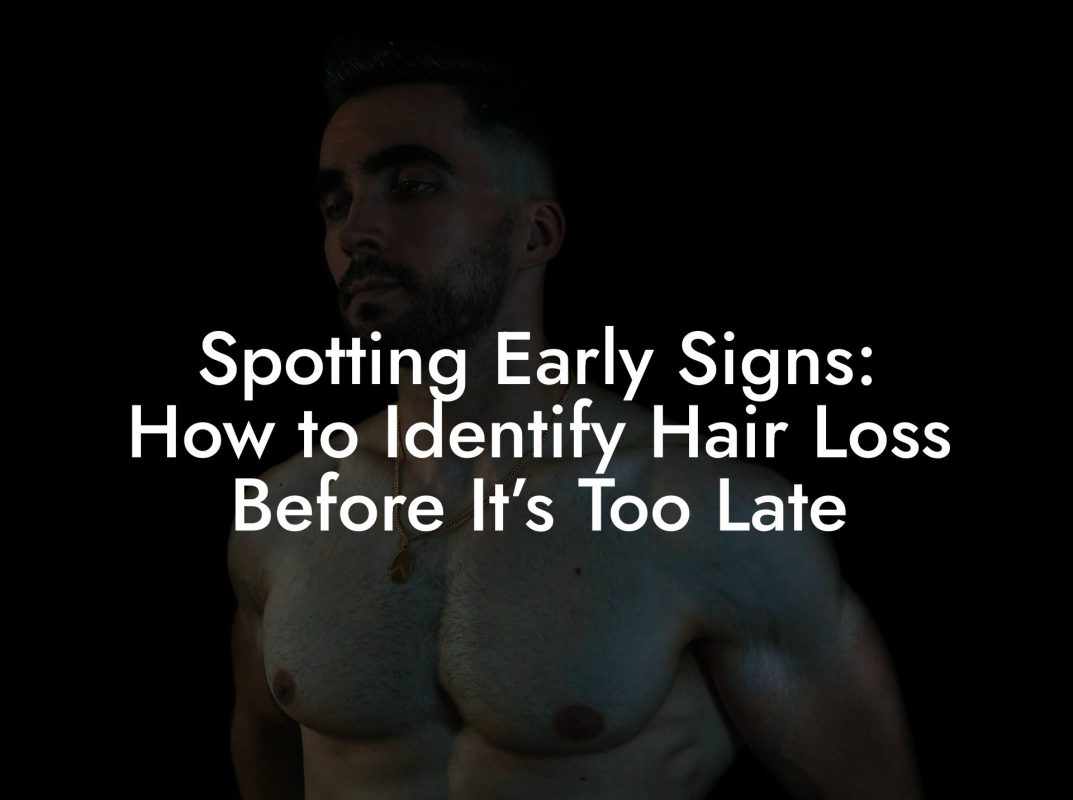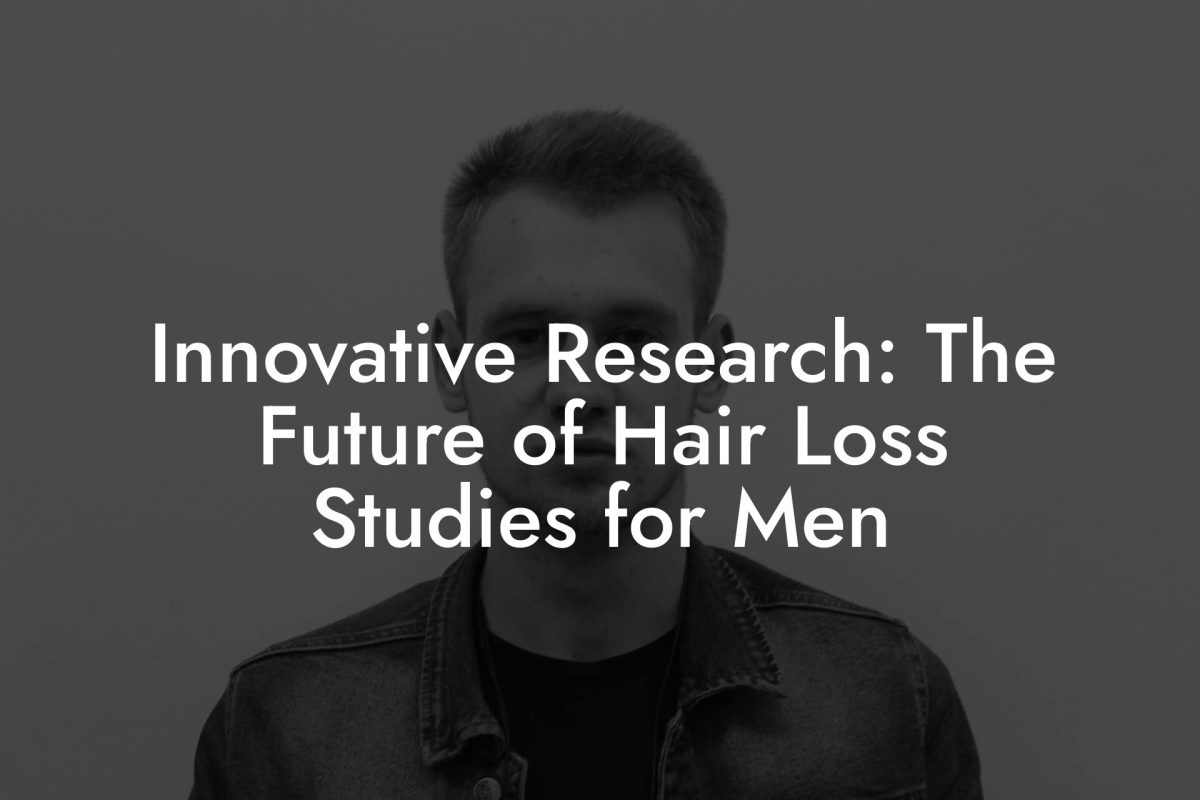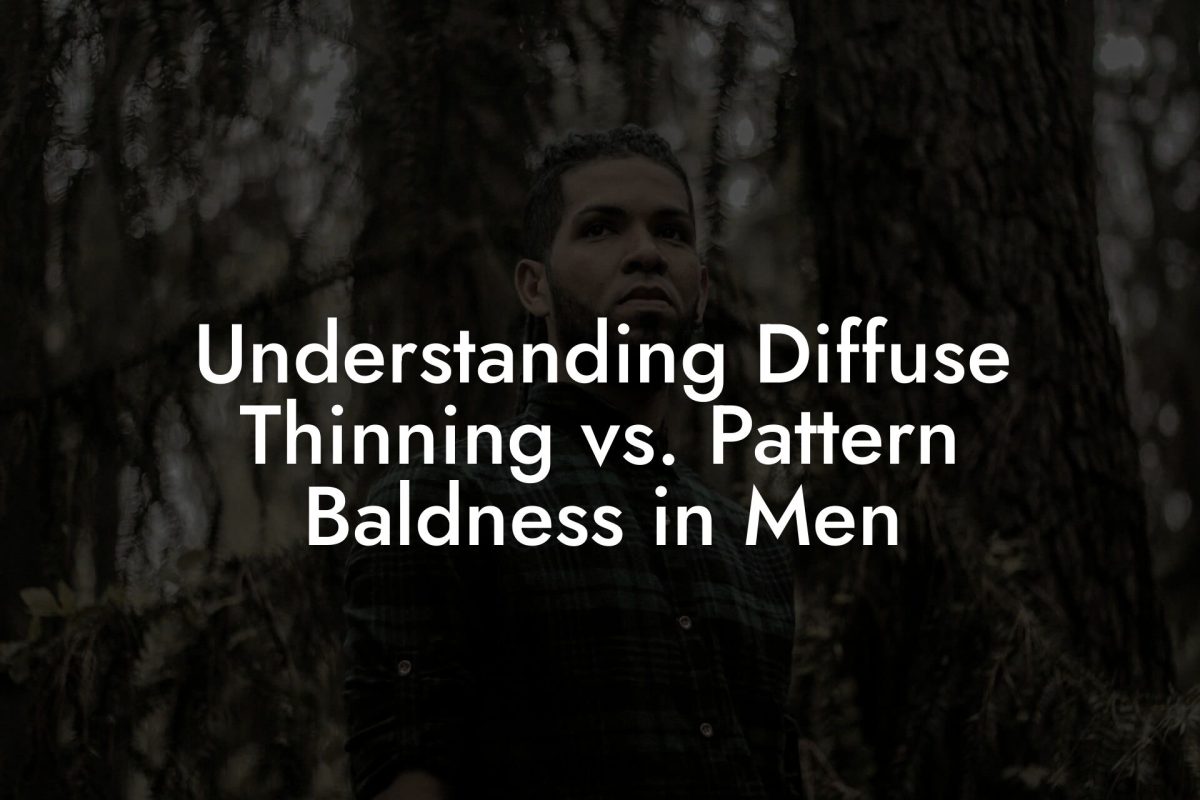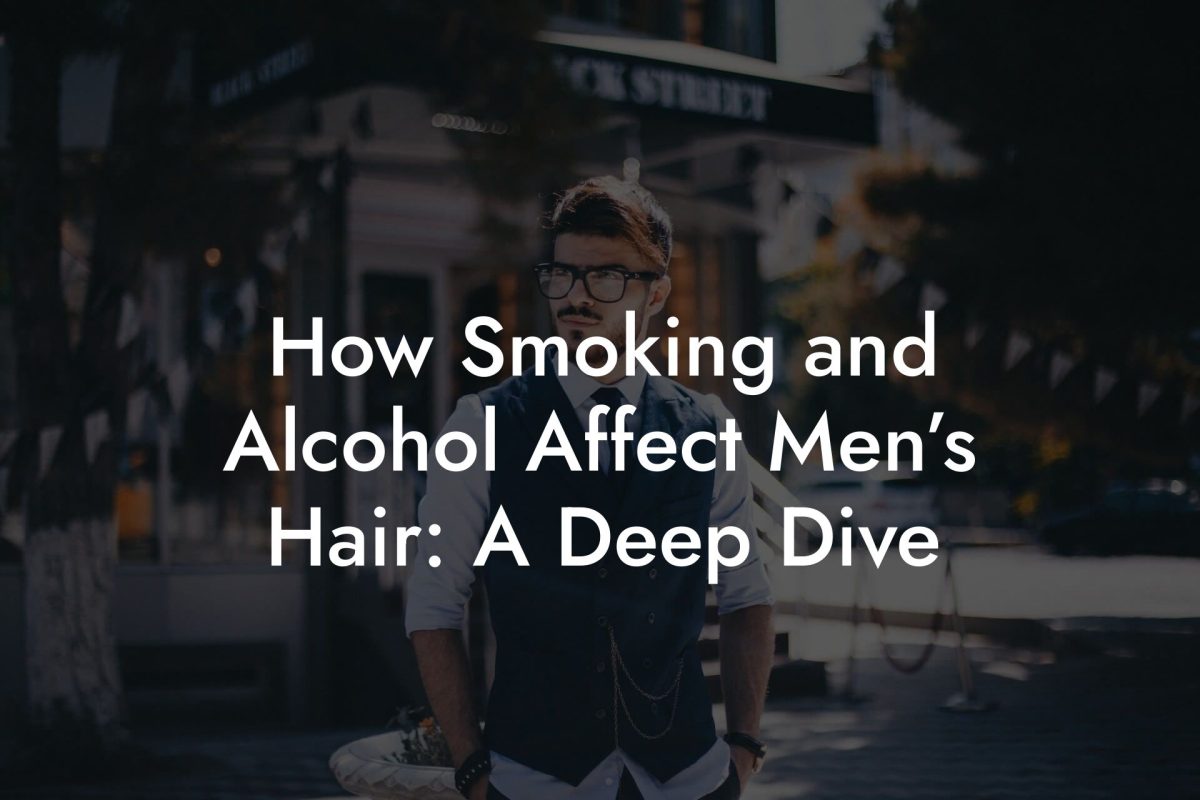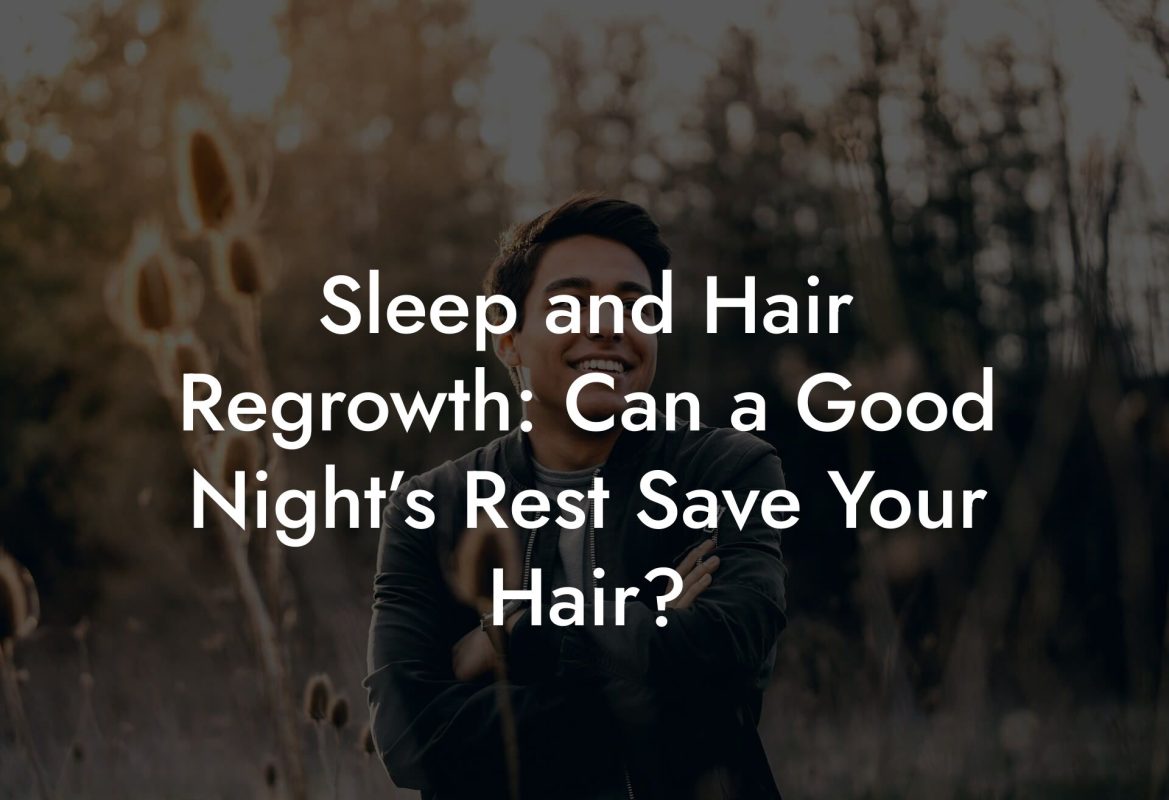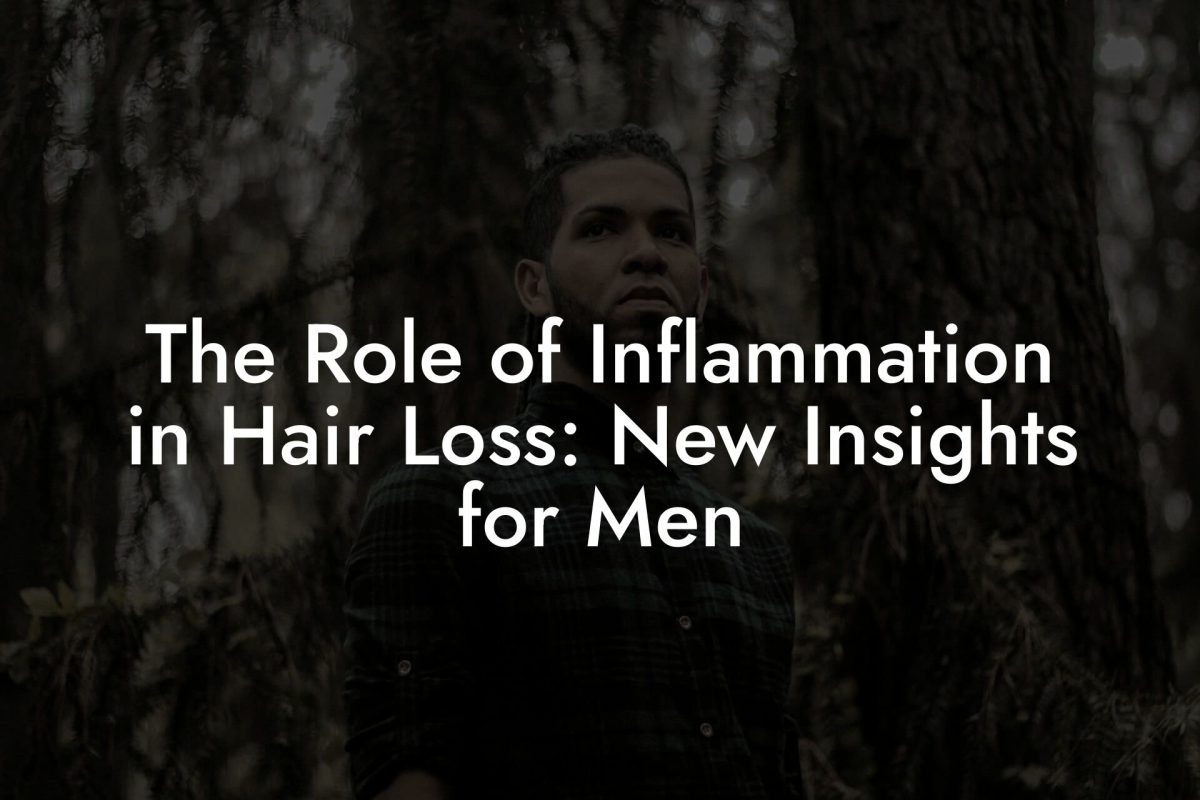Hair Loss Library
Hair Loss Myths Busted: Separating Fact from Fiction
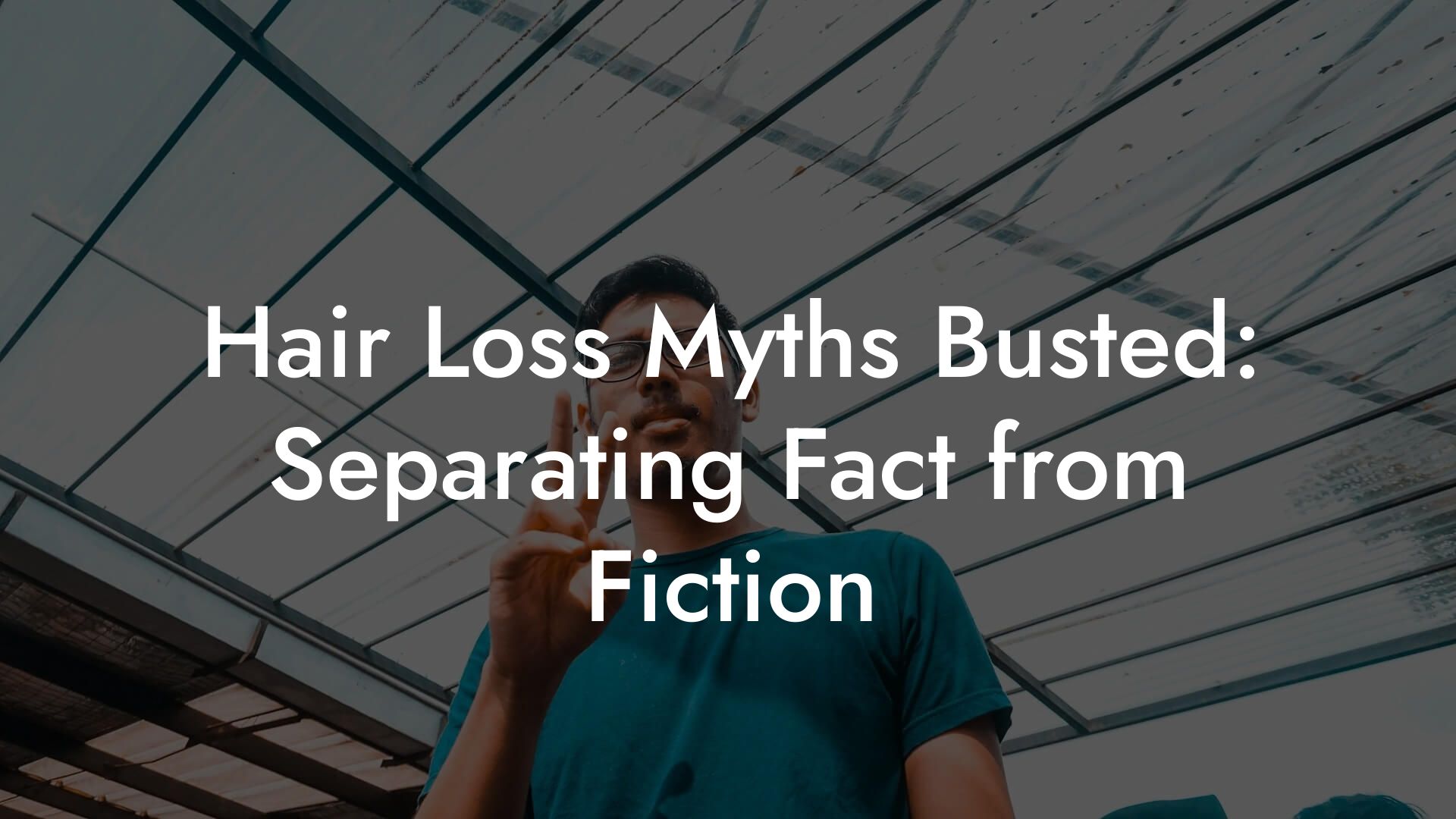
So, you’ve probably heard that hair loss is a one-way ticket to baldness, and that if you even look at a mirror too hard, your follicles will mysteriously pack their bags. Welcome to "Hair Loss Myths Busted: Separating Fact from Fiction"—where we take those whacky rumors by the scruff of their necks and give them a proper reality check. At Mane Matrix, we’re all about giving you the no-nonsense, expert breakdown of your hair loss conundrums—without stifling your style or emptying your wallet on sketchy consultations.
What Are Hair Loss Myths and Why Do They Persist?
Ever wonder why your uncle’s friend’s neighbor swears that shaving daily makes your hair grow thicker? Or why some folks still believe that a bad haircut triggers the infamous “male pattern baldness”? The truth is, misinformation about hair loss has been buzzing around like a stubborn dandruff particle for centuries. These myths not only add stress to an already awkward experience but can also lead you astray from reliable, science-backed advice.
Hair loss myths endure because they’re easy to believe, especially when word-of-mouth and social media throw around catchy soundbites that sound plausible (if only you hadn’t Googled it later). Our goal? To separate the facts from fiction, backed by real research, expert insights, and a little bit of humor, so you can navigate your hair health journey with confidence.
Whether you’re an avid barber shop chatter or a meme-loving millennial, understanding what’s fact and what’s fanciful is the first step in reclaiming control over your mane—or lack thereof.
Debunking the Top Hair Loss Myths
Let’s dive into the wild world of hair loss myths. Spoiler: not everything the internet tells you is gospel. Below are some of the most common misconceptions that have been circulating around.
Myth #1: Shaving Your Head Accelerates Hair Loss
This one is as ubiquitous as it is unfounded. Shaving your head does not cause your hair to fall out any faster, nor does it affect the thickness or texture of new hair regrowth. Hair appears thicker after a shave because the blunt edge of the regrowing hair makes it seem coarser, but the follicle remains totally unaffected.
Myth #2: Wearing Hats Causes Baldness
If you thought your stylish beanie was turning you into a cue ball, think again. The idea that hats cause hair loss comes from early misconceptions about circulation and scalp health. In reality, your hat isn’t sapping your scalp of vital nutrients or causing harmful friction. So go ahead and rock that cap—your hair follicles will thank you.
Myth #3: Hair Loss is Solely a Result of Aging
While it’s true that genetics and age play a huge role in hair thinning, hair loss isn’t just an inevitable part of getting older. Factors such as stress, diet, hormonal imbalances, and even environmental pollutants can contribute to premature hair loss. Recognizing these elements is key to understanding and addressing your hair’s needs.
Myth #4: Only Expensive Treatments Can Restore Your Mane
It might sound too good to be true, but you don’t need to break the bank or commit to a lifetime of invasive procedures to address hair loss. From over-the-counter treatments to natural remedies and lifestyle tweaks, there are plenty of cost-effective options on the market. The key is finding what works for you, often with a bit of trial and error, and always keeping a skeptical eye on “miracle cures” that seem too good to be true.
Myth #5: If You Eat Right, Your Hair Will Never Fall Out
Sure, nutritional deficiencies like a lack of vitamins D, B12, or iron can contribute to thinning hair, but simply eating a salad a day isn’t a guaranteed solution for robust hair health. A balanced diet supports overall well-being, including hair vitality, but it’s only one piece of the puzzle. Genetics, stress levels, and various environmental factors also have significant roles to play.
Myth #6: Hair Loss is Always Permanent
Not true! While conditions like androgenic alopecia (male pattern baldness) are typically progressive, many types of hair loss are temporary. Conditions such as telogen effluvium—often triggered by stress or illness—can reverse over time with the right care and lifestyle adjustments. The takeaway? Know your type of hair loss before resigning yourself to a life without a trusty comb-over.
Myth #7: Only Men Experience Hair Loss
In the spirit of inclusivity, it’s important to note that while hair loss is more common and more socially discussed among men, women can and do experience significant hair thinning and loss as well. The myths may have a gender bias, but the science does not. Understanding this helps in breaking down stigma and addressing hair loss as a broader health issue.
The Science Behind Hair Loss: Fact Over Fiction
When it comes to hair loss, the real story is written by your genes, hormones, and lifestyle—not by urban legends passed along in barbershop banter. Scientific studies show that the most prevalent form of hair loss in men is androgenetic alopecia, influenced by genetics and the hormone dihydrotestosterone (DHT). But there’s more to the story than just biology.
Hair follicles are highly sensitive mini-organs embedded in your scalp, each with its own life cycle—anagen (growth phase), catagen (transitional phase), and telogen (resting phase). Factors such as stress, nutritional deficiencies, or even certain medications can cause follicles to prematurely shift into the shedding phase, creating the illusion of dramatic hair loss. However, restoring balance in your overall health can support a healthier hair growth cycle.
Recent advancements in hair research have also highlighted the role of inflammation and scalp health. A well-circulated, toxin-free scalp environment is essential for nurturing hair follicles. So while your favorite myth might lead you to believe that no good hair day is possible after a certain age, science tells us that targeted treatments, lifestyle modifications, and sometimes a bit of patience can keep your hair game strong.
In essence, treating hair loss is about understanding the underlying science and tailoring your approach to your unique genetic blueprint and lifestyle.
Spotlight on Diet and Lifestyle: Fueling Your Follicles
You are what you eat—and your hair is no exception! While a hearty burger might be a guilty pleasure, your follicles need a balanced diet loaded with vitamins, minerals, and antioxidants to thrive. Foods rich in omega-3 fatty acids (think salmon, walnuts, and flaxseeds), vitamins A, C, D, and E, as well as iron and zinc, can help fortify your hair from the inside out.
But let’s break it down for you:
- Nutrient Powerhouses: Leafy greens, berries, lean proteins, and nuts are not just delicious—they’re also packed with nutrients that support healthy hair. For instance, biotin (a B-vitamin) has been linked to reduced hair shedding and a robust hair growth cycle.
- Hydration Station: Staying hydrated is crucial. Water aids in nutrient absorption and helps maintain a healthy scalp environment. Aim for at least 8-10 glasses a day, and remember that hydration isn’t just about water—herbal teas and water-rich fruits count too!
- Stress and the Tress Effect: Chronic stress is a notorious saboteur of hair health. When you’re stressed, your body diverts energy from non-essential functions like hair growth to more critical survival processes. Integrating stress-reducing activities like mindfulness, exercise, or that hobby you’ve been putting off can do wonders for your mane.
- Cutting Out Toxins: Smoking, excessive alcohol consumption, and even pollution can all contribute to poor scalp health. Minimizing exposure to these factors can help keep your hair follicles in tip-top shape.
Remember, there’s no magic pill for hair loss, but a holistic approach that includes a balanced diet and a low-stress lifestyle can significantly enhance overall hair health.
Treatments and Technologies: Separating Miracle Cures from Media Hype
In the age of viral trends and influencer endorsements, hair loss treatments are a hot commodity—and not all that glitters is gold. From expensive laser therapies to the ever-popular minoxidil and finasteride, it’s easy to get lost in a sea of miracle promises. So let’s set the record straight.
First off, it’s crucial to acknowledge that what works for one man might not work for another. And while some treatments come backed with promising clinical data, others are little more than clever marketing tricks.
Minoxidil and Finasteride: These two stalwarts of hair loss treatment have been extensively researched and are proven to slow down the progression of androgenetic alopecia in many men. While they’re not a cure-all (and come with potential side effects), they’ve earned their place in the hair loss toolkit for a reason.
Low-Level Laser Therapy (LLLT): Laser combs and caps have been gaining traction as a non-invasive option. By stimulating cellular activity at the follicle level, LLLT shows promise in improving hair density for some users. However, consistency is key, and results can vary from person to person.
Platelet-Rich Plasma (PRP) Treatments: This technique involves drawing your own blood, processing it to concentrate the platelets, and then re-injecting the plasma into your scalp. The idea is that growth factors in the plasma can kick-start hair regeneration. It’s a fascinating approach, but like all treatments, it works best when tailored to your individual condition.
Natural Remedies: From essential oils like rosemary and peppermint to herbal supplements, the natural route has its own fan base. While some studies suggest these remedies can improve scalp circulation and reduce inflammation, they’re most effective when used as part of an overall healthy lifestyle rather than a standalone fix.
The bottom line? There’s no one-size-fits-all miracle cure for hair loss. A smart approach involves combining expert advice, ongoing research, and a healthy dose of skepticism when it comes to extravagant marketing claims.
Knowledge is power, and being informed about the science behind each treatment can save you time, money, and frustration on your journey toward better hair health.
Mane Matrix’s Expert Analysis: What We Really Think
At Mane Matrix, we don’t do fluff. Our expert analysis is rooted in the latest scientific studies and clinical practices combined with a healthy respect for personal experience. We believe that tackling hair loss is as much about understanding your body’s natural rhythms as it is about debunking the legends passed down through the generations.
Our team of professionals is dedicated to helping you sift through the noise. We break down complex medical jargon into relatable, no-BS advice you can actually use. Instead of subscribing to the “try everything once” mentality, we guide you through tailored strategies backed by research. Because at the end of the day, it’s not about counting the myths—it’s about empowering you with knowledge that your follicles will love.
Our mission is to make expert analysis accessible, so you can confidently choose the treatments and lifestyle adjustments that align with your unique genetic blueprint and daily routine.
Resources and Community Support: Your Next Steps
One of the best parts of modern digital life is finding communities that understand your struggles—whether it’s complaining about bad hair days, sharing funny memes about receding hairlines, or swapping tips on the latest scientifically backed treatments. In this section, we’ve curated a list of resources and community activities to help you stay informed and supported.
Online Forums and Groups: Join discussion boards and social media communities where real men share their personal experiences with hair loss. These communities can be empowering, offering peer support, personal stories, and even recommendations for trusted professionals.
Expert Webinars and Podcasts: Dive into sessions hosted by dermatologists, trichologists, and hair health experts who share the latest research trends, debunk myths, and offer Q&A sessions. Listening to these experts can provide you a deeper understanding of what’s really going on under your scalp.
Local Support Groups: Check if your area has support groups or meet-ups where you can share experiences and tips face-to-face. Not only is this a great way to get practical advice, but it’s also a reminder that you’re not alone in your journey.
Blogs and Online Publications: Stay updated with new insights by following reputable blogs, such as Mane Matrix’s own updates, which provide ongoing advice, recent studies, and news about emerging trends in hair health.
Consultation Services: When in doubt, consulting a trusted professional can make a world of difference. Our team at Mane Matrix believes in empowering you with facts—not fear—so that any recommendation you receive is tailored to your specific needs.
Taking the next step in your hair loss journey is all about arming yourself with knowledge and leaning on a community that gets it. Explore these resources, ask questions, share your wins and struggles, and above all, know that every head of hair has its own unique story.
The Future of Hair Health: Trends and Innovations
As technology evolves and our understanding of hair biology deepens, the future of hair health looks promising. Imagine treatments that use gene editing to silence the pesky factors behind hair loss, or personalized therapies based on a quick saliva test that maps your unique genetic profile.
Innovations in low-level laser therapy, nano-technology in topical treatments, and even wearable scalp monitors are just a few of the trends that could revolutionize how we think about and manage hair loss. It’s an exciting time to be navigating the hair health space—with a perfect blend of science, tech, and a bit of old-school common sense.
By staying informed and embracing new developments as they arrive, you’ll not only have the upper hand against hair loss myths but also be ahead of the curve with effective, modern solutions that work.
Here at Mane Matrix, we are committed to keeping you updated with the latest breakthroughs so that every piece of advice is as cutting-edge as the technology that inspires it.
Real Stories, Real Results: Personal Journeys with Hair Loss
There’s nothing quite as inspiring as a real-life story of transformation. Across the landscape of hair health, countless men have bucked the trends, challenged the myths, and reclaimed their confidence. These aren’t just testimonials—they’re proof that with the right mindset, science-backed treatments, and a supportive community, you can take control of your hair loss journey.
Consider Mark, a 32-year-old software developer who spent years trying every “miracle cure” advertised online. After a thorough consultation and adopting a multi-faceted approach including dietary adjustments, low-level laser therapy, and mindful lifestyle changes, Mark not only witnessed positive changes in his hair density but also experienced an overall boost in self-esteem.
Or take Jason, who shrugged off early-on stigma by joining an online community and engaging in expert webinars. Jason’s journey reminds us that knowledge, community, and persistence are the secret ingredients to overcoming hair loss challenges.
These personal journeys serve as a reminder: hair loss isn’t the end of your story—it’s just a chapter. With the right support and expert guidance, you too can write the next chapter with bold confidence and a little extra swagger.
FAQ: Hair Loss Myths Busted—Your Burning Questions Answered
We’re wrapping up our myth-busting expedition with an FAQ section designed to address your most pressing hair loss questions. Consider this your go-to resource whenever you need a quick reality check.
1. Does shaving your head make your hair grow back thicker?
Not at all. Shaving only cuts off the hair at the surface; it doesn’t affect your hair follicle or the natural growth cycle. The coarser look after a shave is merely an optical illusion.
2. Can wearing hats really cause baldness?
No, wearing hats does not affect your scalp’s health or trigger hair loss. Hats might sometimes cause temporary scalp irritation if they’re too tight or unclean, but they’re not responsible for causing baldness.
3. Is hair loss only a result of aging?
Aging is a major factor in hair loss, especially in cases like androgenetic alopecia. However, stress, diet, and other lifestyle factors also contribute heavily to premature hair loss.
4. Do expensive hair loss treatments guarantee results?
Not necessarily. While many high-end treatments have clinical backing, results can vary based on individual factors. It’s important to research, consult experts, and sometimes combine treatments to find what truly works for you.
5. Can diet and nutrition really impact hair loss?
Absolutely. A nutrient-rich diet supports overall health, including that of your follicles. Vitamins, minerals, and antioxidants all play a role in nurturing the hair growth cycle.
6. Are non-invasive treatments like low-level laser therapy effective?
Many men have experienced positive results with low-level laser therapy, though individual outcomes vary. Consistency and proper usage are key factors in its effectiveness.
7. Is hair loss irreversible?
While genetic hair loss such as androgenetic alopecia is often progressive, many forms of hair loss, especially those driven by stress or nutritional deficiencies, can be reversed with proper treatment.
8. How do I know which treatment option is right for me?
The best approach is a thorough consultation with hair health experts who can assess your specific condition and recommend tailored solutions. Don’t rely on one-size-fits-all advice—your genetics and lifestyle matter.
9. Can I prevent hair loss entirely?
While you might not be able to completely stop the genetic factors at play, a proactive approach involving healthy diet, stress management, and appropriate treatments can slow down the progression significantly.
10. How long does it take to see results from treatments?
Results vary. Some treatments may show noticeable improvements within a few months, while others, especially those addressing underlying causes, may take longer. Consistency and patience are key.
Your Next Chapter: Embracing Your Unique Hair Journey
Breaking free from the shackles of hair loss myths is more than just a knowledge win—it’s a lifestyle revolution. When you equip yourself with evidence-based insights, a balanced approach to diet and lifestyle, and a supportive community, you gain the power to make informed decisions about your hair health.
Whether you’re embracing shorter styles, experimenting with new grooming products, or exploring innovative treatments, remember that your hair journey is uniquely yours. Every strand is a chapter in your story, and every myth debunked is a victory for confidence.
At Mane Matrix, we’re on a mission to arm you with expert analysis that cuts through the noise and lets you focus on what really matters—feeling good about yourself, every single day. So, go ahead: rock that look, experiment fearlessly, and let your individuality shine through. Your next chapter starts now.
Stay curious, stay informed, and most importantly, stay true to the real you. Here’s to busting myths, breaking stereotypes, and celebrating the incredible journey of hair health—one fact at a time.
If you loved this article... Dive deeper into the world of mens hair loss with our most popular sections. If there is anything you think is missing or anything you would love for us to write about, just give us a shout.
Why Am I Losing Hair? Unpacking the Science Behind Men’s Hair Loss
The Ultimate Guide to Male Pattern Baldness: Causes and Clues
Hormones & Hair: How Testosterone Impacts Hair Loss in Men
Genetics vs. Lifestyle: What’s Really Causing Your Hair Loss?
Stress and Strands: Exploring the Link Between Anxiety and Hair Loss
Decoding Androgenetic Alopecia: What Every Man Needs to Know
How Aging Affects Your Hair: Understanding the Natural Process
The Role of Diet in Hair Health: Nutrients That Prevent Hair Loss
Environmental Factors: How Pollution and Toxins Trigger Hair Loss
Medical Conditions and Hair Loss: What’s Normal and What’s Not?
The Impact of Medications on Men’s Hair: What You Should Ask Your Doctor
Unraveling Scalp Health: Signs Your Scalp Needs Extra Care
Hair Loss Myths Busted: Separating Fact from Fiction
The Role of Inflammation in Hair Loss: New Insights for Men
Sleep and Hair Regrowth: Can a Good Night’s Rest Save Your Hair?
How Smoking and Alcohol Affect Men’s Hair: A Deep Dive
Understanding Diffuse Thinning vs. Pattern Baldness in Men
Innovative Research: The Future of Hair Loss Studies for Men
Spotting Early Signs: How to Identify Hair Loss Before It’s Too Late
Autoimmune Disorders and Hair Loss: What Men Need to Know
The Science Behind Hair Follicle Miniaturization Explained
How Your Lifestyle Choices Impact Your Hair’s Future
Understanding the Hair Growth Cycle: What Every Man Should Know
When to Worry: Recognizing Abnormal Hair Loss Patterns in Men
The Intersection of Genetics and Environment in Male Hair Loss





